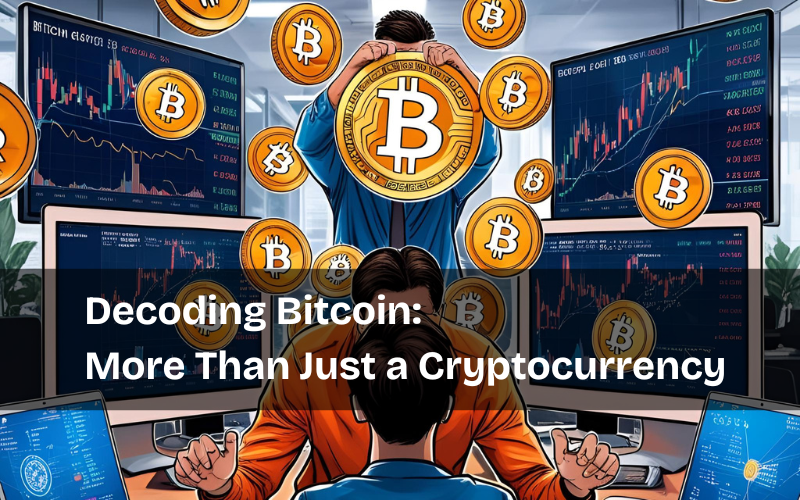Cookie Settings
Please allow us to collect data about how you use our website. We will use it to improve our website, make your browsing experience and our business decisions better. Learn more

Bitcoin is often labeled as a cryptocurrency, but its impact reaches far beyond digital transactions. With its decentralized structure, blockchain technology, and potential to revolutionize finance, Bitcoin is reshaping how we perceive money, assets, and trust in economic systems. In this blog, we’ll dive deep into Bitcoin’s true essence—beyond its role as just another digital currency.
Bitcoin was introduced in 2009 by Satoshi Nakamoto as a peer-to-peer electronic cash system. Unlike traditional fiat currencies, Bitcoin is decentralized, meaning no central authority controls it. It operates on blockchain technology, ensuring transparency, security, and immutability in transactions.
While Bitcoin functions as a medium of exchange, its influence extends into several key areas:
| Feature | Bitcoin | Traditional Finance |
|---|---|---|
| Decentralization | Fully decentralized | Centralized institutions |
| Supply Control | Fixed (21M) | Unlimited printing |
| Transaction Speed | Fast (via Lightning Network) | Slow (bank approvals) |
| Borderless Transactions | Yes | Limited by banking policies |
| Inflation Resistance | Yes | Vulnerable to inflation |
Bitcoin’s foundation is blockchain—a distributed ledger that records transactions transparently and securely. Key benefits include:
Despite its advantages, Bitcoin faces hurdles:
However, with institutional adoption, technological advancements, and increasing mainstream acceptance, Bitcoin is poised to become more than just a cryptocurrency—it could reshape global finance.
Bitcoin is a paradigm shift, challenging conventional financial systems and offering a decentralized alternative for value exchange, investment, and innovation. Whether you’re an investor, a tech enthusiast, or simply curious about its evolution, understanding Bitcoin beyond its currency role unlocks a world of opportunities.